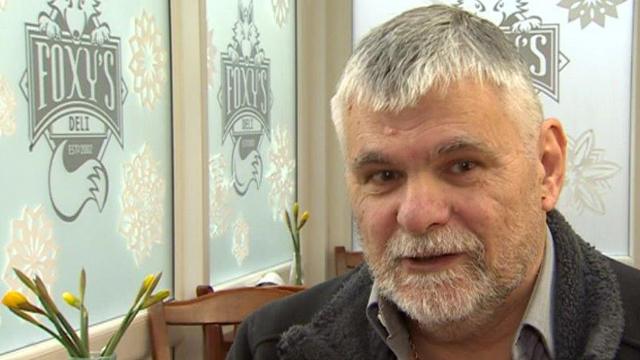Roadchef shares scandal widow demands action by UK government
- Published
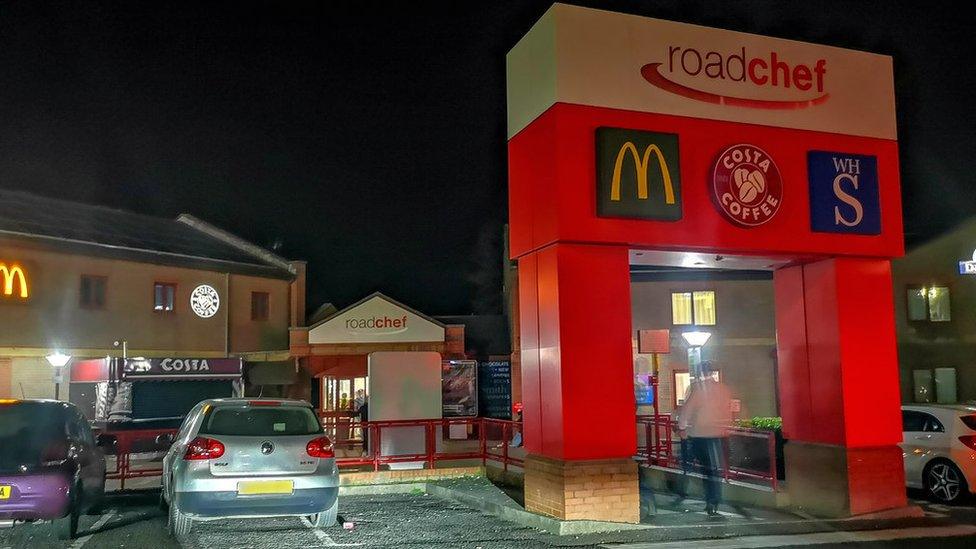
If you have travelled on a motorway in the UK, there's a good chance you stopped at a Roadchef services
A widow is calling on the UK government to act to allow thousands of victims of a share scandal to finally receive tax-free compensation.
Workers at Roadchef motorway services won a legal battle in 2014 after losing millions when shares in an employee scheme were transferred.
It then emerged a further £10m had been taken in taxes.
In 2018, that cash was returned - but a continuing dispute with tax officials means no full payout has been made.
HM Revenue and Customs said it was working to bring the case to a conclusion.
"There's a lot of people who've died and haven't had the money," said Eleanor Nicholls, from Llanelli in Carmarthenshire.
Her husband Michael was one of the workers who should have benefited.
He was one of more than 200 beneficiaries in Wales alone - with over 4,000 across the UK due payouts from the share scheme.
He worked for 18 years at the Pont Abraham Roadchef services, where the M4 ends at junction 49.
But the former steelworker died in February 2010 from lung cancer aged 68.
More than 10 years on, Eleanor is still waiting for the compensation.
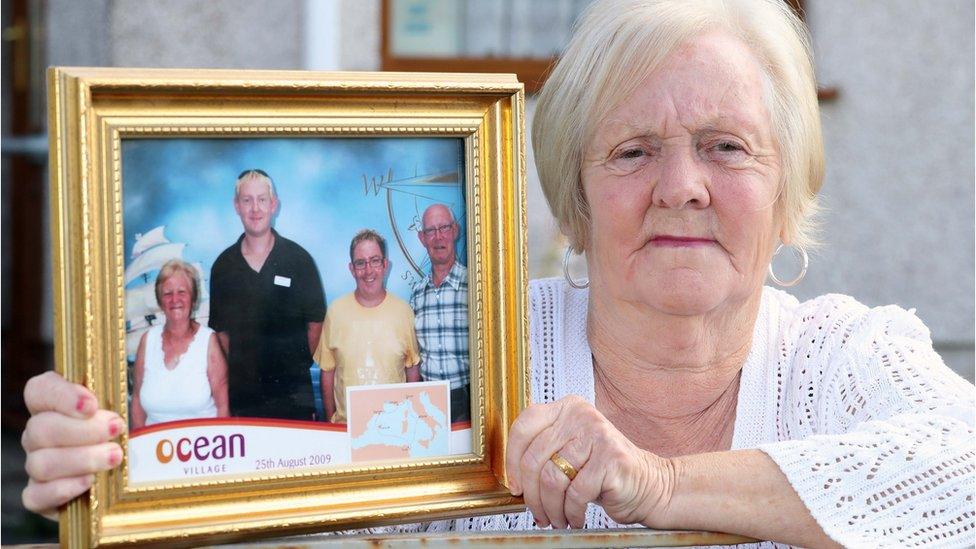
Michael Nicholls died aged 68 - his wife is still waiting for the share benefit payments he was due
Back in 1998, when the scandal was uncovered, the GMB union estimated average payouts from the share scheme should have been about £90,000 for eligible workers.
Most got about £2,300 at the time.
"We both worked tirelessly to put money aside for our children's future," said Eleanor, who is now 74, as she reflected on the decade since her husband died.
"I worked in a care home and he did the night shift at Roadchef so there was always someone in the house to look after my elderly mother, who was starting to get dementia.
"Ten years ago, we'd needed a break and managed to get to Spain.
"Michael was taken ill when we were away but I thought it was the hot weather.
"When we came home he went to have a chest X-ray and the doctor called me in and told me 'your husband is a very sick man'. It was two tumours, one on the lung and one on the brain.
"He only lasted six weeks."
There were more hard blows to follow for Eleanor and her family.
"Months later my mother died. All the money we'd saved for our retirement had to go to pay for the two funerals," she said.
"The money from Roadchef would have really helped.
"It could have eased the stress and anxiety at wondering if I could afford to stay in the home that myself, Michael and our family had worked so hard for over all these years, and the beautiful memories that we shared there."

What happened at Roadchef?
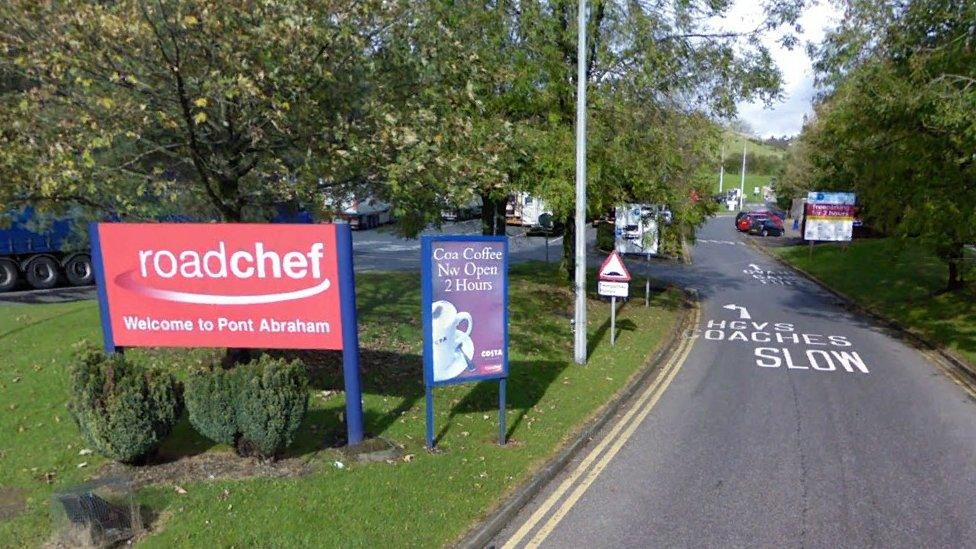
Roadchef is the third largest roadside services firm in the UK, operating sites such as Pont Abraham where Michael Nicholls worked
In 1986, the managing director of the motorway service chain was Patrick Gee.
He wanted to see workers benefit from an employee share scheme - where workers have a share of the ownership - not unlike how retailers such as John Lewis operate.
He established what was due to become the UK's very first Employee Share Ownership Plan - where staff could earn shares in the firm based on their length of service.
But then the Roadchef head died unexpectedly at the age of just 43.
His successor was Timothy Igram Hill, who managed to take control of the employees' shares, making him an estimated £27m when he sold the company to Japanese investors in 1998.
But the company secretary at the time, Tim Warwick, blew the whistle on his boss, and spent the next quarter of century helping those who had lost out from his home in Penarth in the Vale of Glamorgan.
Sadly he died suddenly in August in hospital in Cardiff, without seeing the dispute fully resolved.
The fight had also been taken up by the trust that that had originally been established to manage the scheme for the workers - and the Roadchef Employees Benefits Trust Limited (REBTL) sued Mr Igram Hill.
While there was no suggestion he had acted illegally, in January 2014 the High Court ruled that Mr Ingram Hill had breached his fiduciary duty to Roadchef employees.
An out-of-court settlement was reached between him and REBTL in 2015, with hopes the matter was then resolved.
But then it emerged £10m of the share money had been handed over to HM Revenue and Customs.
Another battle ensued.
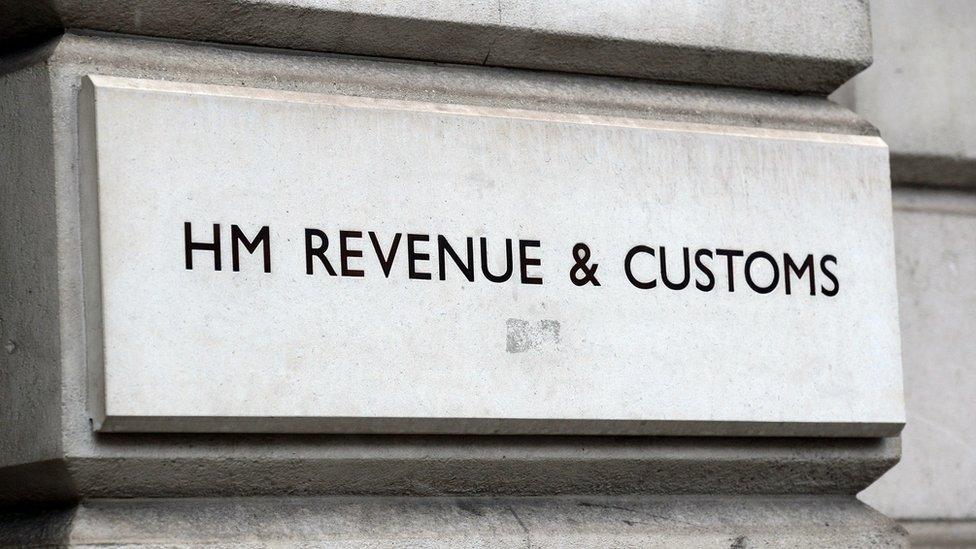
HM Revenue and Customs remains in dispute over compensation
Legislation passed in 2003 should have meant employee share schemes like this are tax free.
But because the cash assets had already been taken from the original scheme five years earlier, it appeared the Roadchef workers had fallen through a legal gap.
Then in 2018, HMRC returned the taxed cash to the trustees.
However, a dispute still remains: Should those due to receive compensation be expected to pay tax individually on those payments?
No say the beneficiaries, backed by campaigners, trustees and a group of cross-party MPs.
Until this matter is finally resolved, the victims of this scandal are still waiting - 25 years after it happened.

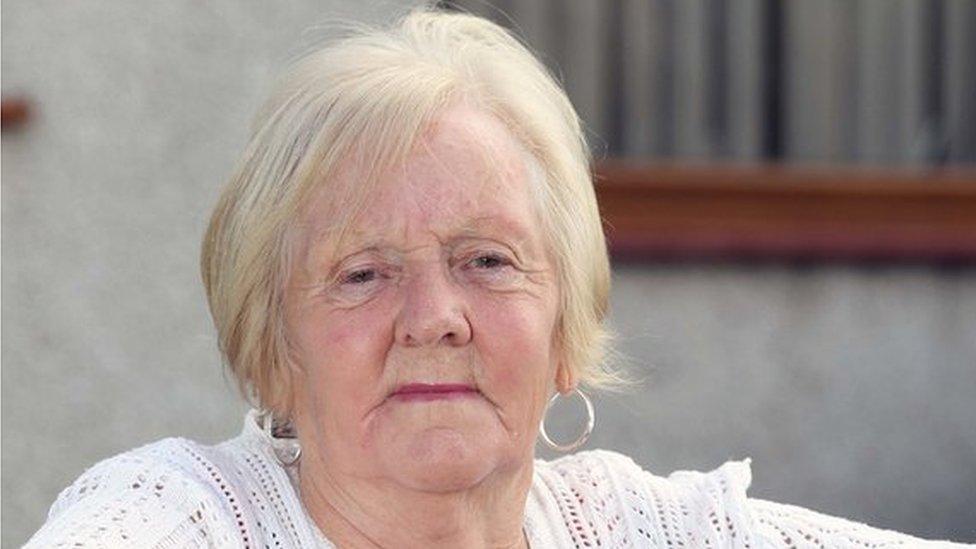
Still waiting: Eleanor Nicholls wants the dispute to be resolved after 25 years
Michael Nicholls' widow Eleanor continues to wait.
"Michael died 10 years ago and I've been fighting all this time to get what's owed," she said.
"It's upsetting for me to have this all in my mind and re-do it all again. There's so much pressure on me. I get letters and think 'is this it? Has it finally been sorted out?'
"But all the letters say is 'sorry, sorry'. It's frustrating. I try to put it at the back of my mind, but it's hard.
"Bring it to an end, that's what I'd say to the government. We can't keep going on month after month, year after year like this.
"My husband's not here to see it and he would have just wanted to enjoy ourselves."
She has had the backing of her local MP, Labour Shadow Welsh Secretary Nia Griffith: "Former Roadchef workers and their families, like Mrs Nicholls, need to get this money that is owed to them as soon as possible.
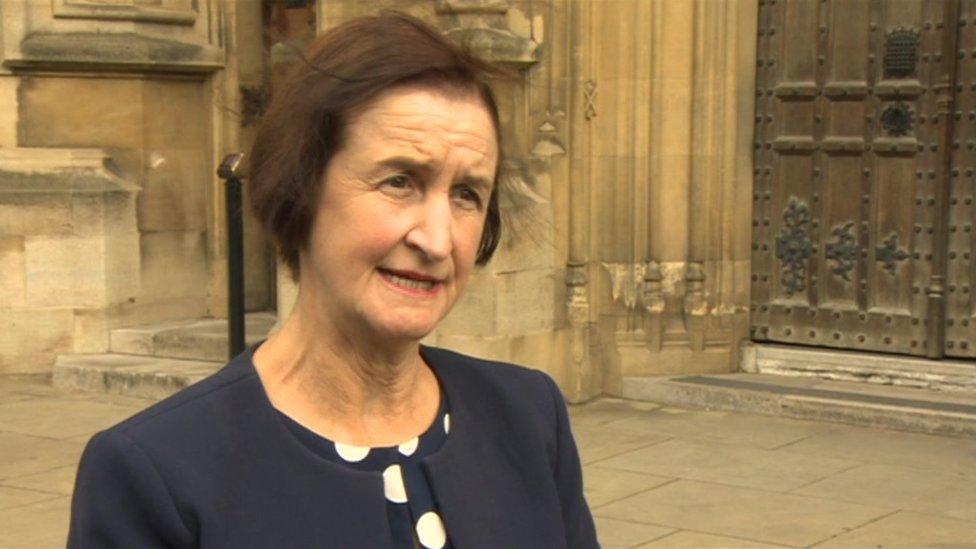
The share fund dispute is "scandalous" says Llanelli MP Nia Griffith
"It is scandalous that they have had to wait so long."
The company Roadchef said the share scheme trust established in the 1980s operates independently and it is not involved in the management of REBTL. It stressed it continues to "support the trustees' efforts to resolve this matter".
A statement on the firm's website added: "Subsequent delays relating to taxation have been a source of frustration for all concerned, and we hope to see a resolution as soon as possible."
An official for HM Revenue and Customs told BBC Wales: "Due to taxpayer confidentiality, we cannot comment on the specifics of the case, but are working to bring it to a conclusion."
- Published2 November 2018

- Published1 February 2015

- Published6 March 2015
